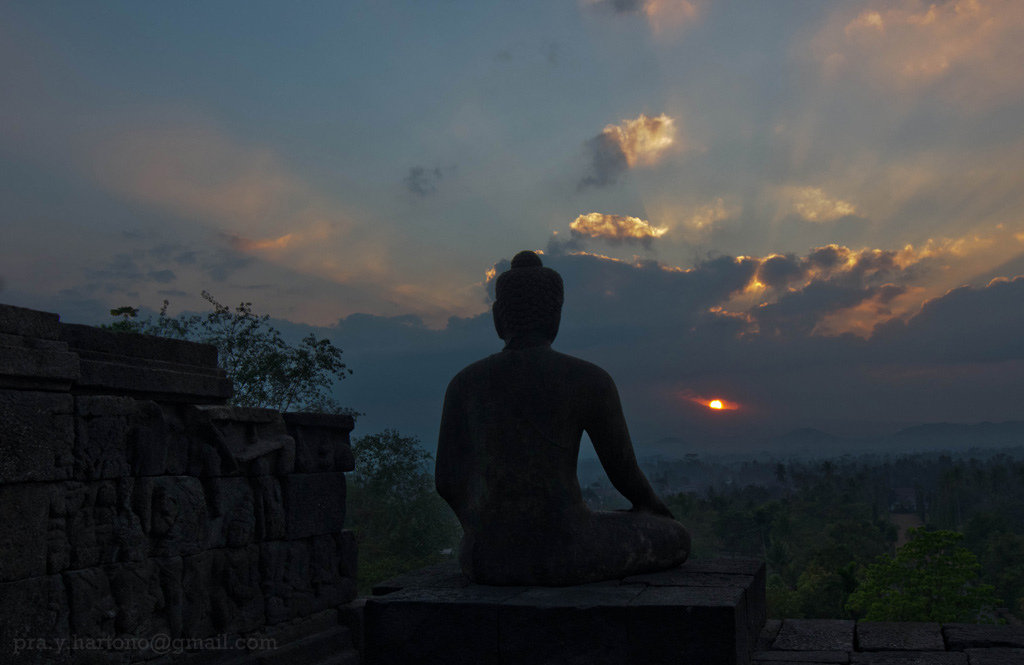This kind of silence appears to be the inner peace of living in the moment and appreciating the invaluable ordinary things around us every day. Quieting all those thoughts that color our perception day in and day out, we live in the moment and tap into a bounty of joy and gratitude for the simplest things.When life is simple,
Pretenses fall away;
Our essential natures shine though.
By not wanting there is calm,
And the world will straighten itself out.
When there is silence
One finds the anchor of the universe within oneself.
We spend much of our time in the future, worrying about what will be and planning what we will do. We also spend a lot of time in the past mulling over regrets, changes, and losses. In order to slow down and live present in the moment, we have to quiet the cycle of stress and worry.
I find that stepping off the roller coaster of anxious thoughts is easiest first thing in the morning, and I think that applies to all of us. Do you want to find your silence? Then before you step into your routine and begin thinking about all the things you have to do today, step back and let your thoughts flow freely. Don't treat today like an emergency. Have faith that you can handle whatever comes because you always have. You are a capable person — capable of coping and of finding inner peace.
- Silence your planning. Stop thinking about all you have to get done before the end of the day. It only overwhelms you. You're a responsible person with a normal memory. Rehearsing everything you're going to do is unnecessary.
- Silence your judgment. Let everything around you just be as it is without assigning the quality of good or bad. When you refrain from rushing to judgment about other people and things, you'll be less likely to harshly judge yourself and fall into perfectionist habits.
- Silence your reactivity. Hold your tongue. Don't just think before you speak, think instead of speaking. Really take your time with it. Defensiveness, excuses, and blame all take energy and that energy is negative. It degrades your mood and keeps you from accessing your higher self.
- Silence your worry. This seems a lot like "planning," but this is actually the worry that constantly asks, "What if?" When you have a bad day or a bad interaction don't wonder, "What if this happens again tomorrow?" The past is the past. Stay in the present moment and focus on making that moment positive.
- Silence your skepticism. When you approach people, things, ideas with immediate distrust, you miss out on the value of that interaction. Sometimes it's so automatic you don't even know you're being skeptical. You call yourselves a stickler or realist, but what you're really saying is, "I won't be surprised." Things can go your way. People can be genuine and positive influencers in your life. Just open your mind.
When we silence all the thoughts that send us hurried and stressed into our day, we become open to the possibility that everything is going to go smoothly. The possibility is always there, but we're not always open to it. We think we get through the day by the skin of our teeth and if we let our worrisome guard down we'll definitely throw the whole thing into chaos. But it's not true. We can accomplish incredible things without cracking a whip. Listen to Kurt Vonnegut: "When things are going sweetly and peacefully, please pause a moment, and then say out loud, 'If this isn't nice, what is?'"
Silence leaves just us — no hangups, no negative self-talk, and no fear. Our mind slows down to the present moment, giving us room for self-care, self-compassion, and gratitude.




Comment: We're constantly filling our ears with music, news and even noise that we create nonstop in our own heads. We probably spend very few moments each day in total silence. But silence can be a major factor to help us relieve tension and stress, replenish our minds and can even help regenerate brain cells.